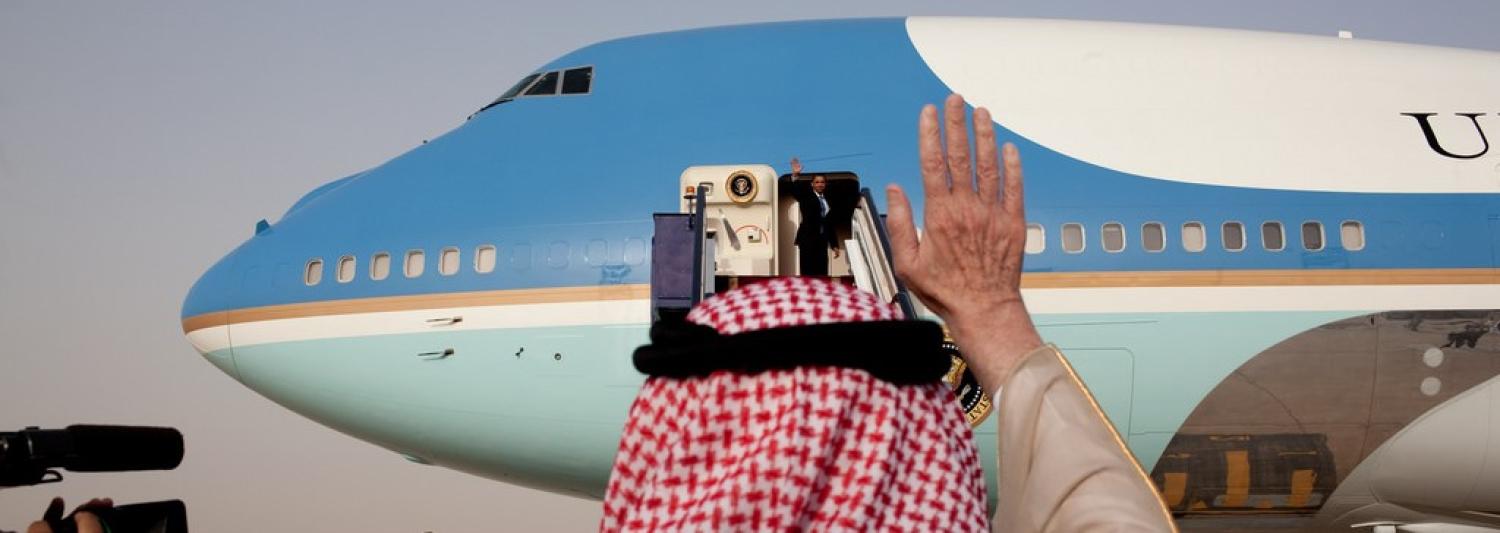For much of the post-World War II era, Saudi Arabia has enjoyed a special relationship with Washington. As America's key regional ally, primary energy provider and key arms market, Riyadh’s ideological mismatch with Western liberal values has traditionally been overlooked, but the contemporary focus on Salafist-inspired jihadism has highlighted this ideological mismatch.
For all Riyadh's multi-billion dollar annual outlays on American and British defence equipment, it has rarely had to employ the weapons on which it has splurged so much money. That is, until the young defence minister Muhammad bin Salman launched an ill-considered Saudi-led air campaign against, and subsequent invasion of, Yemen more than a year ago.
The Saudi prosecution of the war has come under increasing criticism for its apparent lack of a coherent strategic aim as well as the lack of attention paid to target identification and minimisation of civilian casualties. A UN report released in January criticised the significant humanitarian impact of Riyadh’s naval blockade on the Yemeni population, and noted that up to the time of the report 60% of civilian deaths (or more than 2600 people) were caused by the air campaign. These deaths are not on the scale we have seen in Syria of course, but Riyadh’s poor performance in prosecuting the campaign are beginning to pose deep questions for Washington and some European capitals.
The targeting mishap that led to the deaths of scores of Yemenis and injuries to hundreds more has thrown into sharp focus the role of the West in the Saudi-led intervention in Yemen.
Targeting mistakes will always happen in war regardless of the professionalism and experience of the aircrew, particularly when air support is provided while troops are in contact with the enemy or there are targets on the ground inter-mingled with the civilian population. Civilian casualties also occur when attacking forces are in an urban area and the intent is to kill those fighters or force them to leave through indiscriminate use of force, such as we see in Aleppo right now.
But Yemen appears to be a different case – civilian casualties are being caused by incompetence.
Early on in the campaign, US officials were quoted in the New York Times as saying that inexperienced Saudi pilots were flying their missions at too high an altitude, thereby decreasing the accuracy of their attacks and increasing the risk of civilian casualties. Only five days before the strike on the funeral the Washington Post quoted a US official as saying Saudi killing of civilians was due to 'errors of capability or competence, not malice.' Despite these concerns, there appears to be an unfounded belief that the Arab coalition is capable of changing its operational methodology by itself. A British Conservative MP, after returning from a fact-finding mission to Saudi Arabia, recently told the BBC that 'they (Saudi-led coalition) have made some mistakes and have breached (international humanitarian law) in the past, but I can tell you this...things have been really tightened up.'
The rather uncomfortable fact for Washington is that it has provided refuelling aircraft to support the Saudi-led air campaign, and some operational staff support (which allegedly doesn’t extend to target or weapons selection). Moreover, both Washington and London have provided the munitions that are killing Yemeni civilians. US-made cluster munitions have turned up in civilian areas of the capital Sana’a and Amnesty International claims an August 2016 attack on a MSF-run hospital in northern Yemen that killed 11 people used US-made bombs. Claims have also been made that UK-manufactured munitions have featured in attacks on civilian targets in Yemen.
The focus on civilian deaths in Yemen resulting from the actions of a close American ally is also challenging for those in Washington trying to advocate for military intervention in Syria to stop civilians being killed in Aleppo. If the justification for establishing a no-fly zone or safe zones in Syria under US protection is to stop Washington’s enemies from targeting Syrian civilians, isn’t then there an equally compelling case for establishing the same to protect Yemeni civilians from the incompetent actions of Washington’s allies? Of course this is not going to happen, but to counter this argument, Washington's response to Riyadh's poor handling of its air campaign has to be something more than rhetorical.
Washington has leverage over Saudi behaviour in Yemen that it doesn’t have in trying to influence Russian and Iranian behaviour in Syria. Riyadh is reliant on Washington for its own security, and much of its military training and equipment. And while the National Security Committee’s spokesman has said that US assistance is not a blank cheque, Washington could send a much stronger message to Riyadh by ceasing refuelling support to the air campaign, with a threat to cease future supply of air-delivered munitions.
Stopping refuelling would hinder but by no means stop the campaign, and the Saudis could purchase weapons elsewhere and arguably hit back by seeking other suppliers in the future. But if Washington can do little to stop civilian deaths in Syria because it has no leverage, it should at least do all it can to avoid complicity in civilian deaths in Yemen.
Photo by Flickr user The White House.
